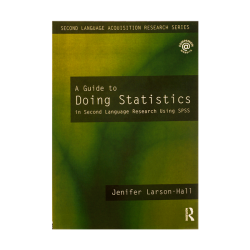4 Vitamins To Take To Stay Fit
Our bodies need a range of vitamins and minerals in order to function optimally, and food sources are always the best way to get them.If you eat a well balanced diet that includes fruits, vegetables, protein, fiber, and certain fortified foods like milk and bread, you are probably getting enough of everything and don’t need to worry.But let’s be honest, shall we? It’s not that easy to eat healthfully. Who among us hasn’t had a few all night junk food and booze benders, or sustained themselves through an entire holiday season on fancy chocolates and egg nog? If you’ve ever had to stop and think about how long ago you last ate fruit, you’re going to want to supplement with a vitamin. That’s cool, we got you. Following are the most important nutrients to make sure you get enough of.
1. Beta Carotene

Beta carotene is an antioxidant that converts to vitamin A in the body. You need vitamin A to maintain a robust immune system, healthy eyes, and clear skin. Get your fill through a diet rich in things like sweet potatoes, green peppers, and carrots (though this will not improve your night vision, contrary to popular belief). One note of caution, though – taking in too much beta carotene in the form of supplements could up your risk of certain cancers and lung disease, especially if you’re a smoker. There is no set RDA for beta-carotene, only for vitamin A (3,000 IU for men and 2,300 IU for women). That can make it tough to select the right strength supplement.
2. Calcium

Our bodies use calcium to maintain strong bone density and prevent osteoporosis. If you are a mature person of a certain age, you are probably seeing a lot of spam emails urging you to get more calcium lest your bones shatter to dust. The best sources are dairy products like milk, cheese, and yogurt.If you hate dairy, you can still get your RDA from foods like kale and canned sardines. Better? No, we didn’t think so. Go ahead and take a calcium supplement, just tread lightly if you are prone to kidney stones or happen to be a woman over 70. Stick to less than 500 mg per dose and take your calcium with vitamin D to improve absorption.
3. Vitamin D
Speaking of vitamin D, when was the last time you went outside? This vitamin, critical to bone health, is synthesized in the body after a period of sun exposure, and it doesn’t take too terribly long. But doctors are now saying that many of us are deficient because we spend so much time inside – at work, at home, or locked in the basement playing Fortnite.You can get vitamin D in your diet from fatty fish or fortified milk if you don’t want to go outside, but don’t hesitate to choose a supplement instead. You may want to ask your doctor to check your levels in any case.In order for the sun to actually stimulate vitamin D production, it needs to be positioned at 50 degrees or greater above the horizon; directly overhead is ideal. There are only so many hours in the day where this is the case, so when you go out makes all the difference.
4. Folic Acid

Folic acid, otherwise known as folate, is a B vitamin that’s a big deal for women who are pregnant or planning to become pregnant. It helps prevent neural tube defects in a growing fetus, for one, but even non-pregnant people do well to get enough of it. Folic acid is thought to reduce your risk of breast cancer, heart disease, and anemia, plus it keeps your brain sharper as you age.You can get your folate through foods like fortified breakfast cereal, citrus fruit, dark green vegetables, legumes, pasta, and bread. There’s no reason not to rely on a supplement if you can’t get your hands on those foods regularly. Aim for 400 micrograms per day unless you’re pregnant or nursing; in that case, bump it up to 600 micrograms.




